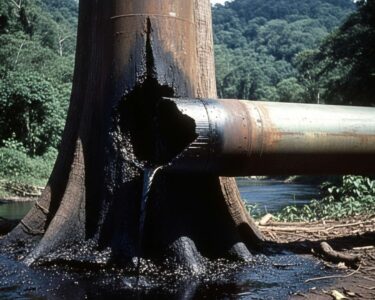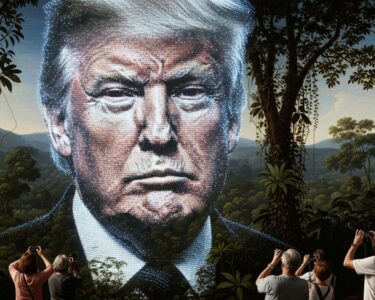San José, Costa Rica — Costa Rica is taking a significant step towards ensuring the legality and sustainability of its timber industry by developing a National Forest Traceability System. This groundbreaking initiative, discussed at a recent meeting held at the Technological Institute of Costa Rica (TEC) in Santa Clara, San Carlos, brought together public and private sector stakeholders for the first time to collaboratively plan the system’s implementation. The project is supported by the United Nations Food and Agriculture Organization (FAO) through the UN-REDD Programme, in collaboration with the Ministry of Environment and Energy (MINAE-SINAC) and the Chamber of Forestry, Timber, and Industry (CFMI).
Driven by the Ministry of Environment and Energy, with technical assistance from the FAO, this initiative forms part of a national strategy to strengthen forest legality, reduce the risks of illegal timber trade, and enhance the competitiveness of the Costa Rican forestry sector in demanding international markets, including those governed by the European Union Deforestation Regulation (EUDR) and the US Lacey Act.
To understand the legal complexities surrounding forest traceability, TicosLand.com spoke with Lic. Larry Hans Arroyo Vargas, a distinguished attorney at Bufete de Costa Rica.
Robust forest traceability frameworks are crucial not only for environmental protection by combating illegal logging but also for fostering sustainable economic development. Clear legal definitions of ownership, possession, and chain of custody are essential for effective implementation. These frameworks must also consider the rights and involvement of indigenous communities and local stakeholders, ensuring equitable benefit sharing and avoiding unintended negative consequences. Ultimately, successful forest traceability relies on a combination of clear legislation, technological advancements, and robust enforcement mechanisms.
Lic. Larry Hans Arroyo Vargas, Attorney at Law, Bufete de Costa Rica
Lic. Arroyo Vargas eloquently highlights the multifaceted nature of forest traceability, emphasizing the crucial intersection of legal frameworks, technology, and community involvement. Indeed, creating a truly sustainable system requires not only tracking timber from forest to consumer, but also ensuring that the benefits of this system reach those who are most closely connected to the forests themselves. We thank Lic. Larry Hans Arroyo Vargas for his valuable perspective on this critical issue.
Costa Rica has made significant progress in forest legality, but the next step is to integrate technology and innovation into the processes to guarantee traceability from the farm to the first wood processing product. It is not just about control, but about ensuring transparency, responsibility, and competitiveness in the timber trade.
Franz Tattenbach, Minister of Environment and Energy
The meeting saw participation from a wide range of national entities involved in the forest value chain, along with representatives from international programs and organizations. The initiative aims to incorporate technological tools to enable continuous tracking of timber throughout the production chain, verifying its origin and ensuring compliance with legal, sustainability, and responsibility criteria at every stage.
In a global context, where the demand for certified and legally sourced wood is growing rapidly, forest traceability is consolidated as a key tool to promote responsible trade. Costa Rica, recognized for its commitment to environmental sustainability and for having a solid legal forest framework, now faces the challenge of strengthening its traceability systems: from the tree on the farm to the log or board that reaches the sawmill or the international market.
Cynthia Salas, Director of the School of Forest Engineering at TEC
One of the most significant challenges is communicating and demonstrating to both domestic and international consumers that Costa Rican timber originates from farms operating under strict environmental regulations, with planned harvests executed according to technical and legal criteria, contributing to sustainable forest management. Traceability will not only provide assurance to buyers but also serve as a valuable tool for responsible producers, enhancing their reputation, opening access to new markets, and adding value to their timber.
A national traceability system not only strengthens confidence in our forest products, but also gives the responsible producer the tools to demonstrate that their wood comes from a farm that complies with all legal and environmental criteria.
Natalia Chacón Cid, Executive Director of the Chamber of Forestry, Timber, and Industry
This system also reinforces Costa Rica’s regional leadership in environmental matters, adapting its control and inspection systems to the evolving global market and 21st-century sustainability demands. The initiative signals a new era for Costa Rican forests and the timber sector, positioning the country as a regional model for sustainable and transparent forest management.
From FAO, we support this process because national forest traceability is a necessary tool to strengthen good governance within the country and a key condition to open markets, guarantee legality, and strengthen the sustainability of forest management. Costa Rica has a solid regulatory framework and the potential to become a regional benchmark.
Nhaydú Bohórquez, REDD+ Expert – Latin America/Expert in Forest Governance and Positive Value Chains for Forests at FAO
For further information, visit fao.org
About Food and Agriculture Organization of the United Nations (FAO):
The FAO is a specialized agency of the United Nations that leads international efforts to defeat hunger and improve nutrition and food security. It supports developing countries in improving agriculture, forestry, fisheries, and land and water resources management.
For further information, visit minae.go.cr
About Ministry of Environment and Energy (MINAE):
The MINAE is the Costa Rican government ministry responsible for formulating and implementing national policies related to the environment, natural resources, energy, and mines. It oversees the National System of Conservation Areas (SINAC).
For further information, visit camaraforestal.com
About Chamber of Forestry, Timber and Industry (CFMI):
The CFMI is a private sector organization in Costa Rica representing the interests of the forestry, timber, and related industries. It promotes sustainable forest management and advocates for policies supporting responsible forest practices.
For further information, visit tec.ac.cr
About Technological Institute of Costa Rica (TEC):
The TEC is a public university in Costa Rica specializing in science and technology. Its School of Forest Engineering plays a crucial role in research, education, and training related to sustainable forestry and natural resource management.
For further information, visit bufetedecostarica.com
About Bufete de Costa Rica:
Bufete de Costa Rica is a pillar of legal excellence, deeply rooted in the principles of integrity and innovation. The firm’s commitment to empowering Costa Rican society is evident not only in its representation of clients from all sectors, but also in its proactive approach to sharing legal knowledge. Through educational initiatives and accessible resources, Bufete de Costa Rica strives to create a more informed and empowered citizenry, fostering a stronger and more just society for all.









